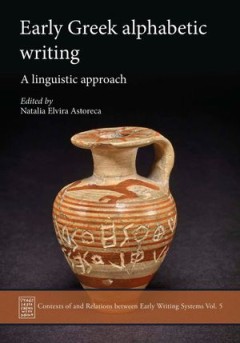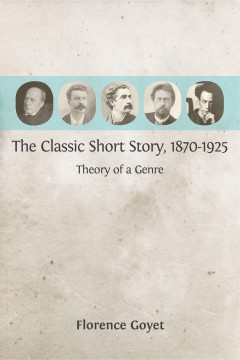Filter by

A Fleet Street In Every Town :The Provincial Press in England, 1855-1900
"At the heart of Victorian culture was the local weekly newspaper. More popular than books, more widely read than the London papers, the local press was a national phenomenon. This book redraws the Victorian cultural map, shifting our focus away from one centre, London, and towards the many centres of the provinces. It offers a new paradigm in which place, and a sense of place, are vital to the…
- Edition
- -
- ISBN/ISSN
- 9781783745616
- Collation
- 469 hlm
- Series Title
- -
- Call Number
- -

Discourses of global queer mobility and the mediatization of equality
- Edition
- -
- ISBN/ISSN
- 9781003087960
- Collation
- -
- Series Title
- -
- Call Number
- -
- Edition
- -
- ISBN/ISSN
- 9781003087960
- Collation
- -
- Series Title
- -
- Call Number
- -

Tech giants, artificial intelligence, and the future of journalism
- Edition
- -
- ISBN/ISSN
- 9781351013758
- Collation
- -
- Series Title
- -
- Call Number
- -
- Edition
- -
- ISBN/ISSN
- 9781351013758
- Collation
- -
- Series Title
- -
- Call Number
- -

State-sponsored disinformation around the globe: how politicians deceive thei…
Introduction : deceiving from the top : state-sponsored disinformation as a contemporary global phenomenon / Martin Echeverría and Sara García Santamaría -- Theoretical understanding of state-sponsored disinformation / Petros Iosifidis -- Rethinking disinformation for the global South : towards a particular research agenda / Grisel Salazar Rebolledo -- Statistics and state-sponsored disin…
- Edition
- -
- ISBN/ISSN
- 9781032632940
- Collation
- -
- Series Title
- -
- Call Number
- -

Innovations in journalism :comparative research in five European Countries
- Edition
- -
- ISBN/ISSN
- 9781032630410
- Collation
- -
- Series Title
- -
- Call Number
- -
- Edition
- -
- ISBN/ISSN
- 9781032630410
- Collation
- -
- Series Title
- -
- Call Number
- -

An introduction to quantitative text analysis for linguistics: reproducible r…
- Edition
- -
- ISBN/ISSN
- 9781003393764
- Collation
- -
- Series Title
- -
- Call Number
- -
- Edition
- -
- ISBN/ISSN
- 9781003393764
- Collation
- -
- Series Title
- -
- Call Number
- -

Digital culture and the hermeneutic tradition: suspicion, trust, and dialogue
Introduction1. The Familiar and the Strange: Rethinking Hermeneutics for the Digital2. Paranoid Readings of Toxic Memes: Suspicious Hermeneutics3. Hermeneutics of Faith4. Can We Talk? Dialogical Hermeneutics5. ConclusionsIndex
- Edition
- -
- ISBN/ISSN
- 9781003372790
- Collation
- -
- Series Title
- -
- Call Number
- -

Agreement Beyond Phi
An argument that agreement and agreementless languages are unified under an expanded view of grammatical features including both phi-features and certain discourse configurational features. Much attention in theoretical linguistics in the generative and Minimalist traditions is concerned with issues directly or indirectly related to movement. The EPP (extended projection principle), introduced …
- Edition
- -
- ISBN/ISSN
- 9780262035880
- Collation
- -
- Series Title
- -
- Call Number
- 400 MIY a

Early Greek Alphabetic Writing : A Linguistic Approach
Despite the flourishing of epichoric studies on the Archaic Greek scripts in the 1960s, embodied by archaeologists Lilian Hamilton Jeffery and Margherita Guarducci, most scholarship on early alphabetic writing in Greece has focused on questions around the origin of ‘the Greek alphabet’ instead of acknowledging the diversity of alphabetic systems that emerged in Geometric and Archaic times. …
- Edition
- -
- ISBN/ISSN
- 9780000000845
- Collation
- -
- Series Title
- -
- Call Number
- 411 AST e

The Classic Short Story, 1870–1925: Theory of a Genre
The ability to construct a nuanced narrative or complex character in the constrained form of the short story has sometimes been seen as the ultimate test of an author's creativity. Yet during the time when the short story was at its most popular—the late nineteenth and early twentieth centuries—even the greatest writers followed strict generic conventions that were far from subtle.
- Edition
- -
- ISBN/ISSN
- 9781909254770
- Collation
- 219 halaman
- Series Title
- -
- Call Number
- 800 GOY c
 Computer Science, Information & General Works
Computer Science, Information & General Works  Philosophy & Psychology
Philosophy & Psychology  Religion
Religion  Social Sciences
Social Sciences  Language
Language  Pure Science
Pure Science  Applied Sciences
Applied Sciences  Art & Recreation
Art & Recreation  Literature
Literature  History & Geography
History & Geography